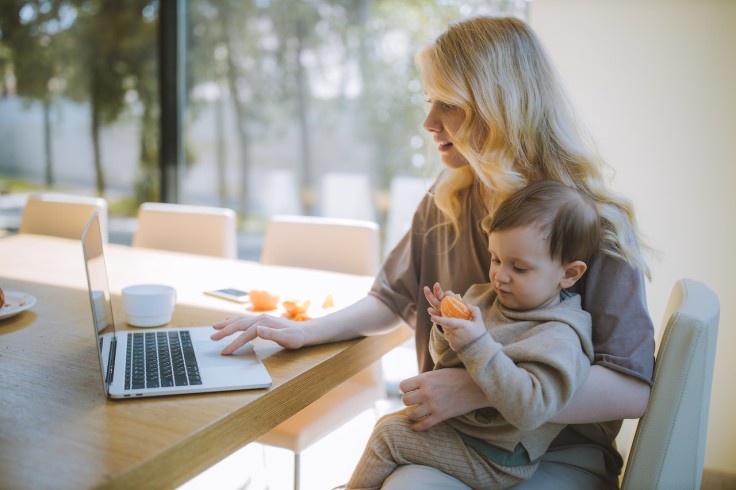
If there was one benefit the pandemic has given, it is the realization that parents can stay at home and be with their children for longer hours while at the same time working or practicing their chosen careers at home. Thus, now that the world is slowly returning to normal, many parents would rather continue to practice the "new normal parenting" - stay and work at home to spend more time with the family and the kids.
Research showed that more than 60 percent of individuals who have tried the work-at-home arrangement said it would greatly help to have a better work-life balance. More and more are working at home as a choice rather than a necessity.
Another study also showed that more and more parents are desiring and have decided to become stay-at-home parents. A shocking number of 60 percent of American parents believe the choice is best for their children. This percentage is higher than the percentage rates during the 1970s and earlier when an estimated 50 percent of women, and very few men, were stay-at-home parents.
Moreover, 90 percent of parents have expressed that having more flexibility at work makes them better parents.
All in all, a lot of parents are now prioritizing time with their children so that they may be able to provide for their physical, mental, and emotional needs.
High Schoolers in need of more attention
A new group of kids increasingly needs attention, and these are the high schoolers. This is because half of these high schoolers have expressed sadness, depression, and hopelessness during the height of and even amid COVID-19.
Mother and book author Mary Dixon Lebeau narrated how she decided to take early retirement as an Employment Specialist five years ago because she wanted to spend more time with her daughter Libby, who was then 14 years old.
She realized back then that her chance to spend time, influence, and teach her daughter was slowly dwindling, having only four more years to really "invest" in the life she would be having. More so, she revealed that her daughter was already battling anxiety even during that time, which was pre-pandemic. Thus, how much more are teenagers suffering now amid the pandemic?
Lebeau, who wrote the book "Secret Jersey Shore: A Guide to the Weird, Wonderful and Obscure," shared that being 100 percent present with her daughter has helped the latter navigate high school. Her daughter has actually thrived and was mature, responsible, and ready enough to step into college, which was a six-hour drive away from home.
Another parent, Bevan R., expressed how the impact of COVID-19 pushed her to reevaluate her decisions, especially regarding her family and career. She has opted to continue working from home full-time as an operation manager because she wanted to be more available for her 16-year-old daughter, who she observed was greatly struggling with depression and anxiety amid the pandemic.
Read Also: How to Work From Home With Children
Work-From-Home gives real-life lessons to teens
Bevan shared that her decision to work at home and spend more time with her daughter and family also benefited her. Knowing she is always present for whatever her daughter needs make her "feel good" as a parent. She feels like she was doing something and making a huge impact and difference in her daughter's wellbeing.
Another parent also shared that leaving her position at work for another that allows her to work from home was so much worth it now that she can spiritually guide her son. Regular prayers are what they do now, which was not part of their schedule before when she was still away for work.
Experts say that the most significant benefit of parents staying and working at home is children being taught real-life lessons, Very Well Family reported.
"If they're combining remote work with family life, they're modeling for their kid how to navigate both worlds in real time where the teen can see it," explained Mayra Mendez, Ph.D., LMFT, licensed psychotherapist, and program coordinator for intellectual and developmental disabilities and mental health services at Providence Saint John's Child and Family Development Center.
Related Article: Stay At Home Parents: Pros And Cons Of Being A Stay-At-Home Parent